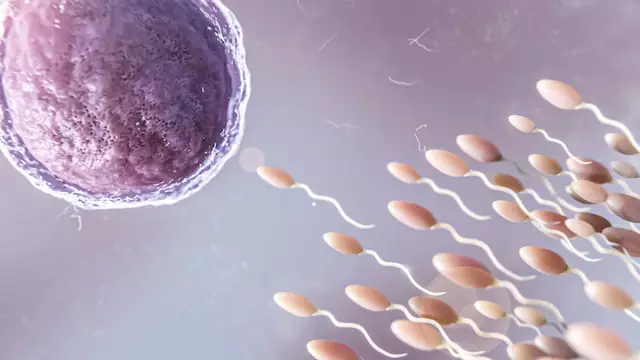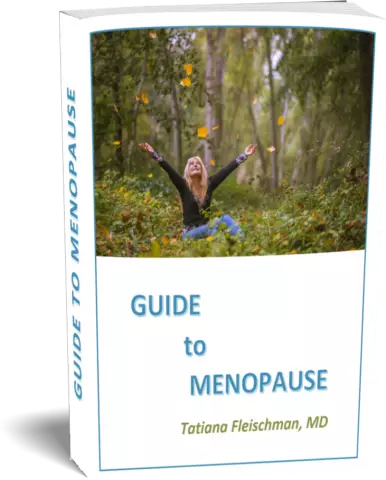- Author Rachel Wainwright [email protected].
- Public 2023-12-15 07:39.
- Last modified 2025-11-02 20:14.
Male menopause
Male menopause is an inevitable period in a man's life, characterized by sexual involution due to age-related changes. According to statistics, more than a third of men experience the classic symptoms of menopause, while the rest of this physiological process may be asymptomatic.
Male menopause: natural processes of restructuring of the body

Male menopause is a natural physiological process characterized by the extinction of reproductive function, with a fairly wide age range. So, menopause in men can occur at the age of 40 (early menopause) to 70 (late menopause) years. During this period, a complex restructuring of the functioning of all body systems occurs, hypodynamia of the sex glands develops (insufficient secretion of sex hormones). During the period of male menopause, there is a disruption in the functioning of the chain "hypothalamus - pituitary gland - testicles", which completely regulates the production of sex hormones - androgens (steroid hormones produced by the sex glands). This violation, in turn, entails a change in the hormonal balance of the body.
It was the change in the level of androgens that caused the introduction of such a term as andropause, meaning a decrease in the level of male sex hormones. However, many experts prefer to use the term "partial androgen deficiency in older men".
Studies have shown that in the period from 30 to 40 years in the male body there is a decrease in the production of androgens by 1 - 3%. After 40 years, this process accelerates significantly. By the age of 80, the level of sex hormones in men is on average 40-50% lower than the physiological norm to maintain normal sexual and reproductive function.
The onset of male menopause does not mean the development of impotence. These two concepts are mistakenly considered identical, while male menopause means a decrease in fertility (a decrease or complete absence of living, active, capable of fertilizing spermatozoa), a decrease or complete absence of sexual desire while maintaining an erection. While impotence is a violation of erectile function, in which there is insufficient erection for natural intercourse.
There are a number of factors that contribute to the early onset of male menopause:
- Infectious and inflammatory diseases of the genital organs, STDs (latent or in anamnesis);
- Testicular neoplasms of a malignant and benign nature;
- The effect of toxic substances on the body as a whole;
- Violation of blood circulation in the testicles and blood supply to the testicles;
- Radiation exposure.
Symptoms of male menopause
The onset and severity of symptoms of male menopause depends on the general condition of the body, lifestyle, sexual activity of the man. A correct lifestyle with an appropriate regimen of rest and work, a healthy diet, and activity contribute to an easier course of climacteric changes in the male body. While smoking, alcohol abuse, a sedentary lifestyle, high intensity of work with insufficient time for rest and recovery of the body significantly aggravate the course of male menopause.
The symptoms of male menopause are manifested primarily by a change in the general condition of the body:
- Increased fatigue;
- Irritability;
- Suspiciousness;
- Dizziness;
- Insomnia;
- Depressive states;
- Increased sweating.
Specific symptoms of menopause in men are:
- Violation of cardiac function - the development of arrhythmia, heart palpitations;
- Hot flashes - redness of the skin of the face, neck, hands;
- Perceptible changes in blood pressure;
- Severe headaches;
- Shortness of breath, feeling short of breath.
Sexual dysfunction in male menopause is very specific. As a rule, this process is rather slow. In most men, it is observed with normal erectile function:
- Accelerated ejaculation;
- Reducing the duration of sexual intercourse;
- Upset orgasm to its complete absence;
- Decreased ejaculate volume.
However, the symptoms of male menopause require diagnostic confirmation of the diagnosis and the appointment of therapy. It is impossible to interfere with this process, while drug therapy and alternative methods can facilitate this process. Symptoms of male menopause appear throughout the period to varying degrees. In the later stages of menopause in men, there is an involution of secondary sexual characteristics, the appearance of fatty deposits in the female type (in the thighs and buttocks). In rare cases, men develop gynecomastia (enlargement of the mammary glands).
Treatment of male menopause: diagnosis, alternative methods of treatment
Treatment of male menopause does not imply a complete restoration of reproductive function, however, drug therapy will reduce the manifestation of symptoms and facilitate the process of restructuring the body.
For the correct diagnosis and determination of treatment tactics for male menopause, it is necessary to undergo a comprehensive examination, including:
- Ultrasound diagnostics of the prostate gland;
- A detailed blood test;
- General PSA (prostate specific antigen) analysis;
- Free PSA analysis.
Treatment of male menopause involves an integrated approach: lifestyle changes, healthy eating, physical and sexual activity, drug therapy. It should be noted that many men with fading sexual function deliberately resort to more frequent sexual intercourse in the hope of stopping the processes of involution. However, the frequency of sexual intercourse does not affect the course of menopause in men. During this period, doctors recommend a measured sex life.
Drug therapy for male menopause includes:
- Hormone replacement therapy;
- Preparations for the normalization of erectile function;
- Vitamins for the maintenance and correction of related conditions.

In agreement with the doctor, you can use non-traditional (folk) methods of treating menopause in men.
To restore sexual function and reduce the severity of the manifestations of male menopause, the following are used:
- Ginseng root tincture;
- Onions (increases libido, promotes increased activity of the gonads, increases the amount of sperm produced);
- Vitamin E (helps to enhance sexual function);
- Celery;
- Medicinal rosemary.
With effective treatment of menopause in men, the following is restored:
- Erectile function;
- Sex drive;
- The symptoms accompanying the male menopause decrease or completely disappear.
However, replacement therapy is unable to restore reproductive function (ejaculate fertility). The replacement therapy is based on natural testosterone preparations. The scheme of application and dosage of the drug is prescribed by the doctor individually. Treatment of menopause in men requires constant medical supervision and dynamic correction of drug treatment.
YouTube video related to the article:
The information is generalized and provided for informational purposes only. At the first sign of illness, see your doctor. Self-medication is hazardous to health!






